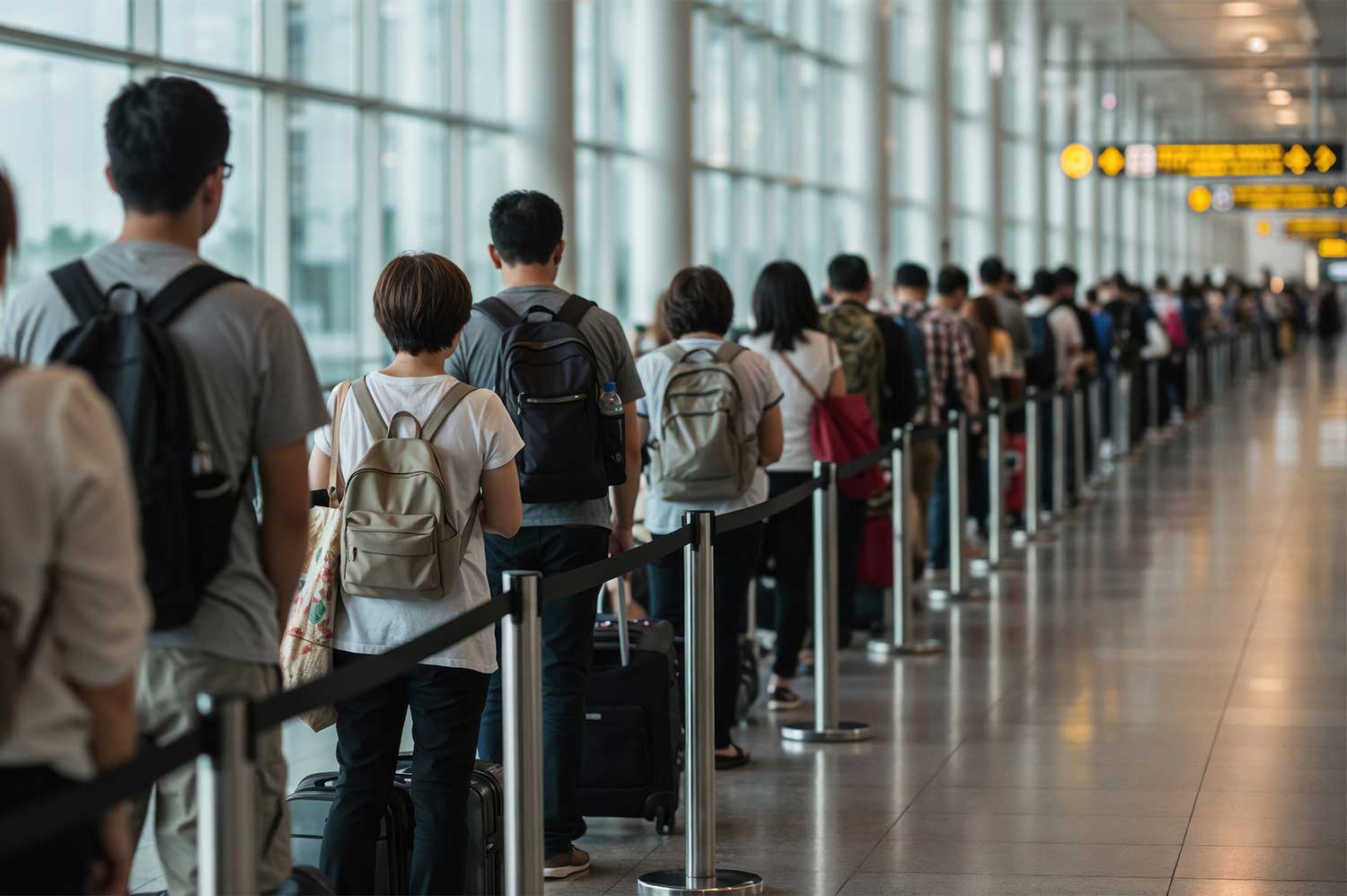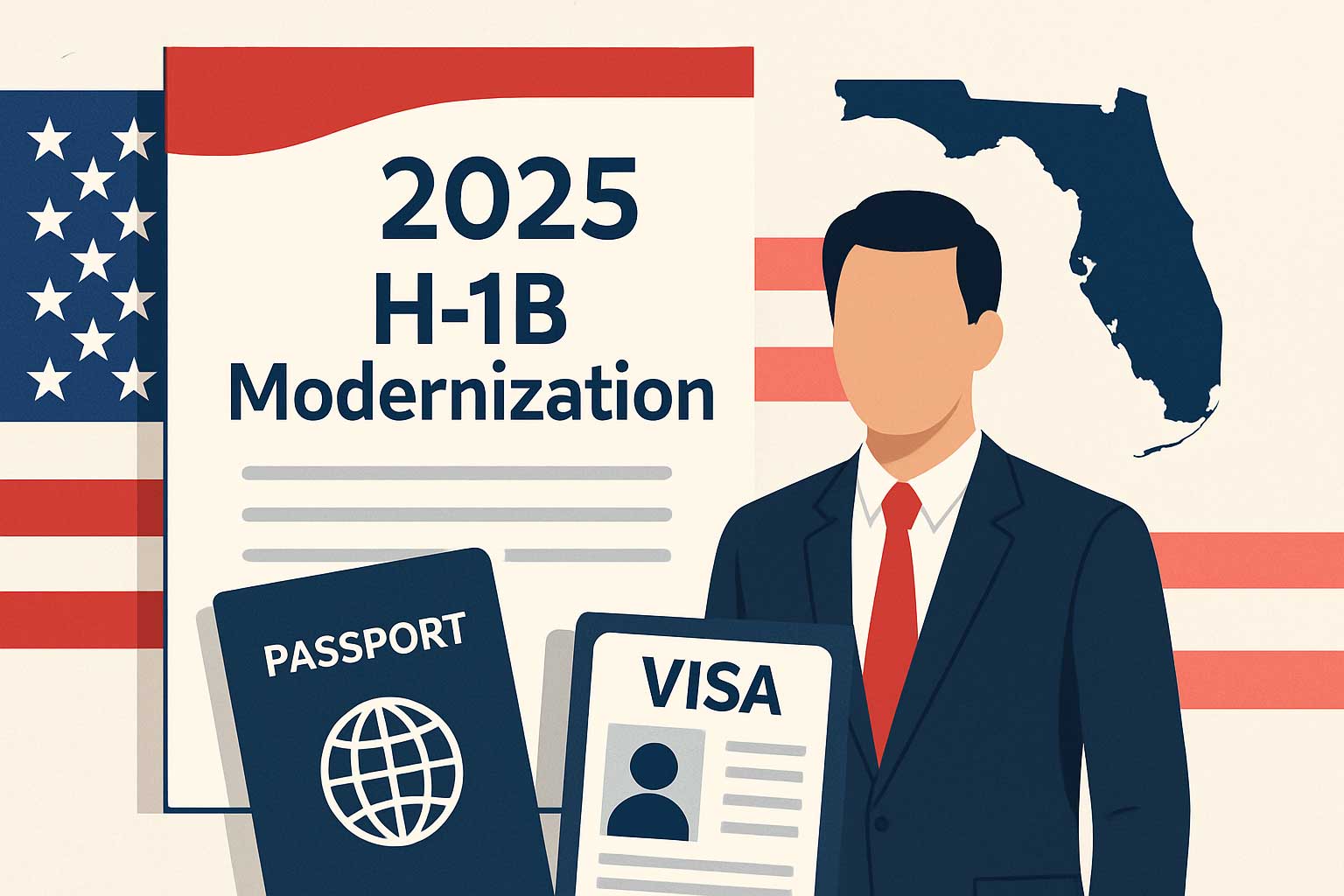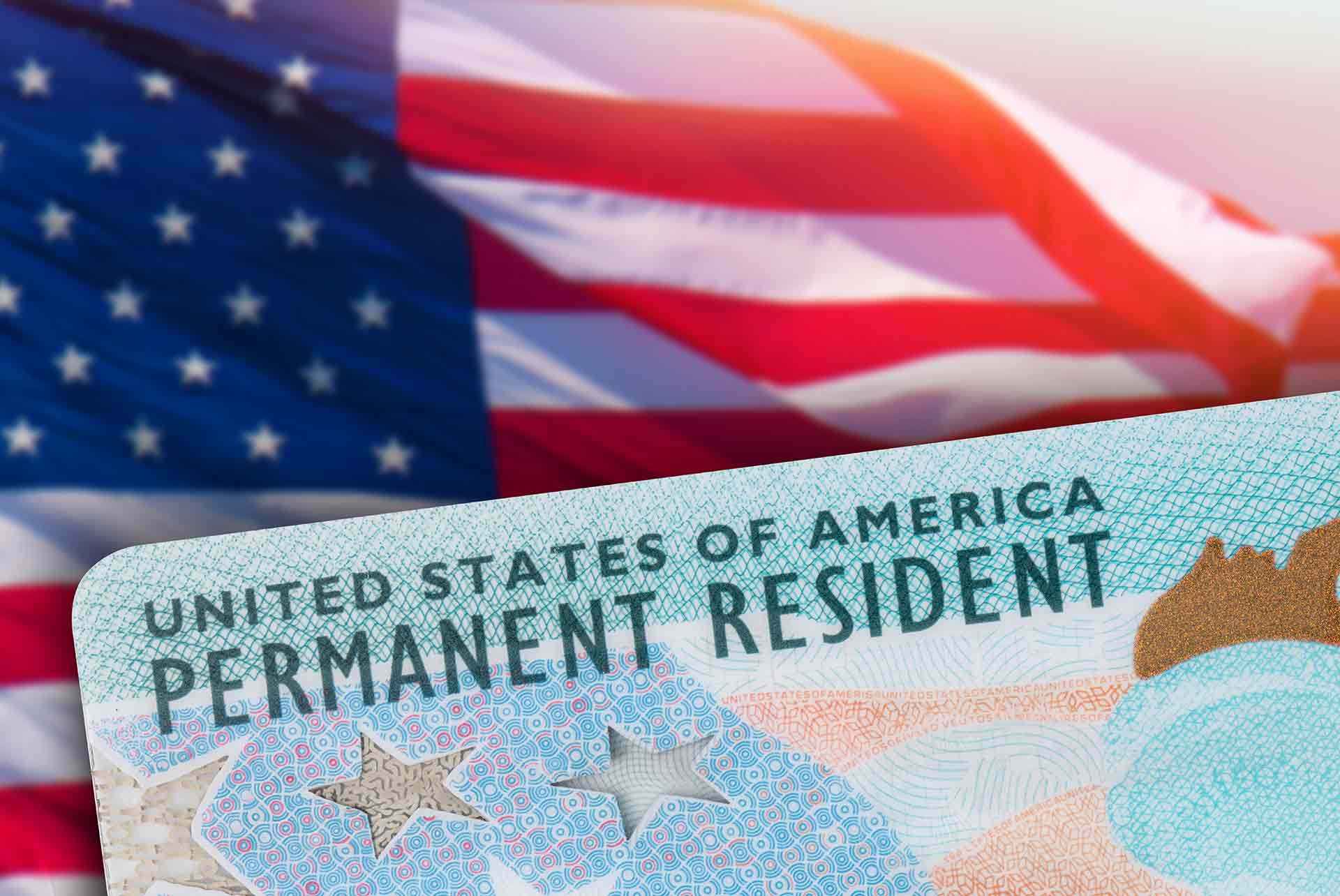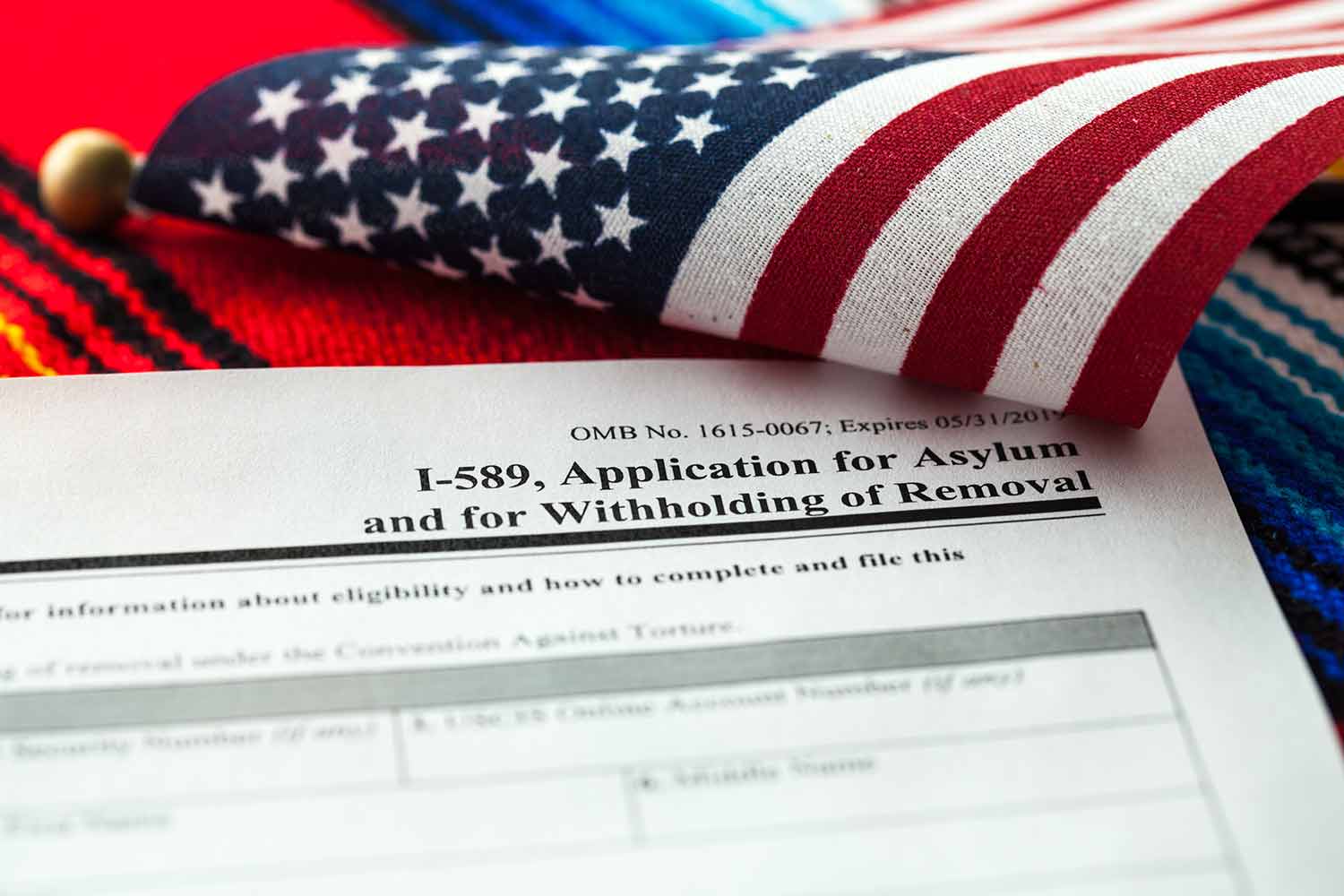Every year, millions of travelers pass through U.S. airports, and many wonder about their vulnerability to immigration enforcement. Whether you’re a U.S. citizen returning from vacation, a lawful permanent resident visiting family abroad, or someone with uncertain immigration status, understanding when and how immigration officers can stop you at airports is crucial for safe travel.
The reality is that law enforcement officers from multiple federal agencies have broad authority to stop and question travelers at various stages of air travel. From international arrivals to domestic flights, immigration enforcement can occur in ways that many travelers don’t expect. This comprehensive guide will help you understand your rights, prepare for potential encounters, and know what steps to take if you’re stopped by immigration authorities.
Key Takeaways
- Immigration officers can stop travelers at airports during entry, exit, and domestic travel
- Customs and border patrol has broad authority to question, search, and detain travelers at international ports of entry
- Immigration and Customs Enforcement can conduct enforcement operations at domestic airports within 100 miles of U.S. borders
- Your rights vary significantly based on your citizenship and immigration status
- Travelers cannot be stopped based solely on race, religion, or ethnicity, though enforcement varies
- Understanding your rights and having proper documentation is crucial for safe travel
When Can Immigration Stop You at Airports
CBP Authority at International Airports
At international airports, customs and border protection officers have extensive authority to stop any traveler entering or exiting the United States. This authority stems from federal law that presumes all individuals are aliens unless they can establish U.S. citizenship, and that aliens are presumed to be immigrants unless they prove otherwise.
Every person seeking entry—whether a U.S. citizen, lawful permanent resident, or visa holder—is subject to inspection upon arrival. Customs officers verify identity, examine immigration documents, and assess admissibility, including screening for criminal history, fraud, or national security concerns. Travelers presenting foreign passports may be subject to additional verification, especially if their passport contains special markers, such as an ‘X’ gender marker, or requires visa validation.
ICE Operations at Domestic Airports
Immigration and Customs Enforcement conducts enforcement operations primarily within the 100-mile “border zone” that encompasses nearly two-thirds of the U.S. population and most major airports. This means that even on domestic flights, travelers may encounter immigration enforcement.
Immigration agents can approach travelers at gates, baggage claim areas, or ground transportation hubs. These operations may target specific individuals based on tips or investigations, but officers cannot stop someone based solely on religious and political beliefs, race, or ethnicity.
An undocumented person traveling through a domestic airport may face heightened scrutiny and risk of detention if identified during enforcement operations.
Enhanced Screening and Random Checks
Government officials may conduct enhanced screening or random checks based on various factors, including:
- Visa type and country of origin
- Travel history and patterns
- Security assessments
- Intelligence reports
Travelers targeted for additional screening are often selected based on a combination of travel patterns, intelligence reports, and perceived security risks.
Travelers from countries subject to U.S. travel restrictions or those deemed higher risk may face additional questioning during the screening process. However, such questioning must be based on legitimate security concerns, not discriminatory profiling.
International Airport Entry and Exit Procedures
Standard Entry Process
Upon arrival at international airports, all travelers must present valid identification and immigration documents to a customs officer. The standard entry procedure involves primary inspection where officers:
- Review passports and valid visa documentation
- Verify traveler identity through interviews and electronic databases
- Assess the traveler’s citizenship status to determine the appropriate level of questioning and admissibility requirements
- Capture digital fingerprints for most foreign visitors and lawful permanent residents
- Assess the admissibility of the traveler under immigration law
Secondary Inspection Process
Travelers may be referred to secondary inspection for further inspection if there are discrepancies, concerns, or for random screening. During secondary inspection, immigration officials may conduct more intensive questioning, review additional documents, or consult with other federal agencies before clearing the traveler for entry. If officers have concerns about the traveler’s documentation or intent, they may also conduct a personal search as part of the secondary inspection process.
This process can involve detailed questions about travel purpose, duration of stay, and connections to the United States. Non citizen visa holders must answer questions establishing their eligibility to enter, while U.S. citizens have broader rights to remain silent during such questioning.
Document Requirements and Searches
All international travelers must present unexpired photo id issued by their government, typically a passport. Foreign visitors must also provide appropriate visas or entry documents, such as ESTA approval for Visa Waiver Program participants.
Border officers have authority under federal law to search luggage, personal belongings, and electronic devices without warrants or reasonable suspicion. This includes the power to request passwords for phones and laptops, review contents, and make copies of information discovered during searches.
Border Search Authority Includes:
- Physical searches of luggage and personal items
- Electronic device inspections without warrants
- Document verification and copying
- Questioning about travel purpose and connections
- Detention for further investigation when necessary
Domestic Airport Immigration Enforcement
The 100-Mile Border Zone
Immigration enforcement at domestic airports primarily occurs within the 100-mile border zone established by homeland security regulations. This zone covers major metropolitan areas and airports across the United States, affecting millions of domestic travelers.
Within this zone, immigration agents can conduct operations targeting individuals suspected of immigration violations. While the Transportation Security Administration handles airport security screening, TSA officers may refer suspicious cases to immigration authorities.
REAL ID Requirements and Documentation
Starting May 7, 2025, all domestic flight passengers over 18 must present a real id compliant license, state identification, or acceptable alternative like a passport. This requirement may particularly affect undocumented individuals who lack proper documentation for domestic travel.
Airport security officers cannot provide false documents or assist travelers in circumventing identification requirements. Those unable to present proper identification may face additional scrutiny or denial of boarding.
Alternative Transportation Considerations
Some travelers choose buses, trains, or other ground transportation to avoid federal facilities where immigration enforcement is more common. However, immigration checkpoints can be established at various transportation hubs, including train stations and bus terminals within the border zone.
Your Rights During Immigration Stops
Constitutional Protections
All travelers, regardless of immigration status, have certain constitutional rights during encounters with government officials. The right to remain silent applies to most questioning beyond basic identity verification. You cannot be stopped based solely on:
- Race or ethnicity
- Religious affiliation or religious practices
- Political beliefs or political opinions
- National origin
- Appearance or accent
Rights by Immigration Status
U.S. Citizens: Must answer questions establishing citizenship but can decline further questioning without risk of denied entry. Citizens may face extended inspection but cannot be prevented from entering the United States.
Lawful Permanent Residents: Must confirm identity and permanent resident status. Can be subject to additional questioning, especially regarding criminal history or tax obligations, but retain strong protections against arbitrary detention. Certain criminal convictions can jeopardize an individual’s permanent residency and may lead to removal proceedings.
Non-Citizen Visa Holders: Must comply with reasonable questions about visa terms, visit purpose, and planned duration of stay. Refusing to answer such questions can result in denied entry or visa cancellation.
Undocumented Individuals: Retain constitutional rights but face significant deportation risks if discovered. Should clearly communicate any fears of persecution to initiate asylum procedures.
Asylum Seekers: Must declare fears of persecution to border officers to begin protection processes, even during airport encounters.
Limits on Officer Authority
While immigration officers have broad powers, they cannot:
- Conduct stops based solely on racial or religious profiling
- Force travelers to unlock electronic devices beyond border searches
- Detain individuals indefinitely without cause
- Deny access to legal counsel during formal proceedings
- Ignore requests for supervisors during improper treatment
Additionally, individuals with established immigration status, such as lawful permanent residents, have the right to a hearing before an immigration judge if their status is revoked or challenged.
Special Situations and Protections
Religious Accommodations
Travelers can request accommodations for their own religious head covering during airport security screening. The Transportation Security Administration provides alternative screening procedures that respect religious practices while maintaining security requirements. If a TSA officer insists on removing or inspecting a religious head covering, travelers have the right to request a private screening and may also ask for a supervisor to be present during the process.
Religious institutions and community organizations often provide guidance on navigating security while maintaining religious observance. However, travelers should be prepared for potential delays when requesting alternative screening procedures.
Traveling with Children
Families traveling with children under 13 benefit from modified screening procedures. These accommodations include allowing children to keep shoes and light jackets on during security screening and providing additional time for document verification.
Parents or guardians must ensure they have proper documentation for minor children, including birth certificates or passports depending on travel type. Immigration officers may ask additional questions about parental authority and child welfare during inspections.
No-Fly List and Redress
Travelers experiencing issues due to no-fly list placement can file inquiries through the TSA Traveler Redress Inquiry Program (TRIP). This program provides a formal process for addressing screening problems and clearing misidentifications.
The redress process can take several weeks or months, so travelers should apply well before planned travel dates. Documentation proving identity and citizenship can expedite the resolution process.
What to Do If Stopped by Immigration
Immediate Response Steps
If approached by an immigration agent or immigration officer at an airport:
- Remain calm and avoid sudden movements or confrontational behavior
- Ask if you are free to leave – if not, you are being detained
- Provide required identification but exercise your right to remain silent beyond basic identity questions
- Do not sign documents without understanding their contents and implications
- Request legal counsel immediately if detained or arrested
During the Encounter
Document the interaction by noting officer badge numbers, names, and details of the stop. If possible, have trusted contacts monitor your travel and know your expected arrival times.
Avoid arguing with officers or making sudden movements that could escalate the situation. If customs officers persist with intrusive questioning beyond legal requirements, politely request to speak with a supervisor.
Never provide false documents or make false statements to federal agents, as this can result in serious criminal charges beyond immigration violations.
Protecting Your Rights
You have the right to request additional screening procedures if you believe you’re being targeted based on discriminatory factors. However, understand that such requests may result in delays or more intensive inspection.
If detained, immediately contact a legal services organization or immigration attorney. Organizations like the American Civil Liberties Union (ACLU) and American Immigration Lawyers Association (AILA) maintain emergency contact resources for travelers facing enforcement actions.
Preparing for Safe Travel
Essential Documentation
Carry valid, unexpired identification documents appropriate for your immigration status and travel type. This includes:
- Valid passport for international travel
- Real ID-compliant license for domestic flights after May 2025
- Green card for lawful permanent residents
- Current visa documentation for temporary visitors
- Work authorization documents if applicable
Keep copies of important documents separate from originals in case of loss or seizure by authorities. Store electronic copies securely with trusted contacts who can access them if needed.
Emergency Contacts and Legal Resources
Maintain readily available contact information for:
- Immigration attorneys specializing in enforcement defense
- Legal aid organizations in your area
- Family members or friends who can provide assistance
- Consular services if you are a foreign national
Research local immigrant communities and religious institutions that may provide support during travel emergencies. Many organizations maintain 24-hour hotlines for travelers facing detention or other enforcement actions.
Travel Planning Considerations
For individuals with uncertain legal status, consider alternative transportation methods when possible. Trains and buses may involve less intensive federal screening, though enforcement can still occur at these transportation hubs.
Plan routes that minimize time in high-enforcement areas when possible. Understand that avoiding air travel may not eliminate all risks but can reduce exposure to certain types of immigration enforcement.
FAQ
Can immigration officers search my phone without a warrant? Yes, at international ports of entry, customs and border protection can search electronic devices without warrants or reasonable suspicion under the border search exception.
Do I have to answer questions about my religion or politics?
U.S. citizens and permanent residents can refuse such questions without denial of entry, but visa holders risk entry denial if they refuse to answer questions establishing their admissibility.
Can I be stopped for being undocumented on a domestic flight? Immigration and Customs Enforcement can conduct operations at domestic airports, especially within 100 miles of borders, and those identified as undocumented face detention risks.
What happens if I’m on the no-fly list? Contact the Transportation Security Administration through the Traveler Redress Inquiry Program to resolve screening issues and clear misidentifications.
Can airline staff remove me from a plane?
Pilots can refuse passengers for legitimate safety concerns but cannot discriminate based on protected characteristics like race, religion, or national origin.
Do children have different rights during airport screening? Yes, children under 13 have modified screening procedures and can keep shoes and light jackets on during airport security screening.
Can I request additional screening if I feel I’m being profiled? Yes, you can request alternative screening procedures if you believe you’re being targeted based on discriminatory factors, though this may cause delays.
What should I do if I’m detained at an airport? Immediately request access to legal counsel and contact an immigration attorney or legal services organization for assistance.
Protecting Your Rights and Seeking Legal Help
Understanding your rights during airport immigration encounters is essential, but navigating these complex situations often requires professional legal guidance. Immigration law involves intricate federal regulations that can significantly impact your ability to travel, work, and remain in the United States.
If you’re facing questions about your immigration status, planning international travel with uncertain documentation, or have experienced problems during airport encounters, consulting with an experienced immigration attorney can provide crucial protection and peace of mind.
Thais Purdy is an immigration lawyer who helps individuals understand their rights, prepare for travel, and address immigration enforcement issues. Whether you need assistance with document preparation, know your rights during airport stops, or require representation during enforcement proceedings, professional legal guidance can make the difference between a successful journey and serious legal complications.
Don’t wait until you’re facing an enforcement action at an airport. Contact Thais Purdy today to discuss your immigration status, understand your travel rights, and ensure you’re prepared for safe travel throughout the United States and abroad.
Tags: immigration law, airport rights, CBP, ICE, travel documentation, immigration enforcement, legal rights, border protection




